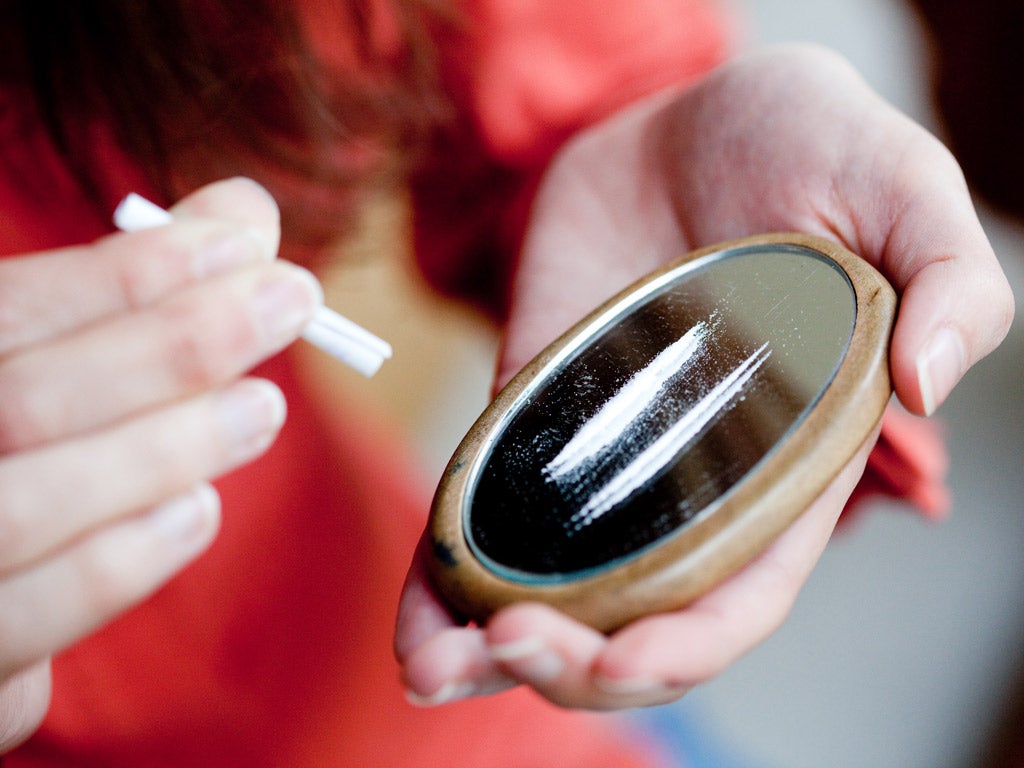One foot in the rave: middle-age drug use rising
Illicit drug use among over-50s has risen sharply as the greying hippie generation ages

Your support helps us to tell the story
From reproductive rights to climate change to Big Tech, The Independent is on the ground when the story is developing. Whether it's investigating the financials of Elon Musk's pro-Trump PAC or producing our latest documentary, 'The A Word', which shines a light on the American women fighting for reproductive rights, we know how important it is to parse out the facts from the messaging.
At such a critical moment in US history, we need reporters on the ground. Your donation allows us to keep sending journalists to speak to both sides of the story.
The Independent is trusted by Americans across the entire political spectrum. And unlike many other quality news outlets, we choose not to lock Americans out of our reporting and analysis with paywalls. We believe quality journalism should be available to everyone, paid for by those who can afford it.
Your support makes all the difference.They were the flower children of the Sixties who turned on, tuned in and dropped out. Four decades on, older but not necessarily wiser, they are still getting stoned on a regular basis.
Illicit drug use among the over-50s has risen tenfold since the mid-Nineties as the hippie generation has become the bus pass generation. Researchers say the growth of drug use among the middle aged and elderly has been long suspected but never investigated and its effects on the ageing brain are unknown.
Almost one in 10 Londoners in their sixth decade is regularly puffing on a joint, snorting a line of cocaine or dropping a tab of acid, according to the findings based on two household surveys of almost 4,000 people. The commonest drug used was cannabis but there were clear differences between those over and under the age of 65, and between London and the rest of the country.
In inner London 9 per cent of those aged 50 to 64 reported using cannabis in the past 12 months compared with 1.8 per cent elsewhere. Among the over-65s, usage rates were 1.1 per cent in London and 0.4 per cent elsewhere in England.
Other drugs also figured but at lower rates. In London one in 200 over-50s reported taking cocaine, ecstasy or LSD, with fewer using magic mushrooms, amyl nitrate ("poppers") or amphetamines. The commonest drug after cannabis taken illicitly was tranquillisers – a legacy, perhaps, of the habit among a previous generation of family doctors of prescribing them for every ill. Professor Robert Stewart of the Institute of Psychiatry, Kings College, London, who led the study published in Age and Ageing, said: "The key message of this paper confirms something that has been long suspected but which has not, to our knowledge, ever been formally investigated in the UK, namely that illicit drug use will become more common in older generations over the next one to two decades.
"We know very little about the effects of drugs like cannabis in older people and we will need to work fast if research is to keep up with its wider use at these ages. Our data suggest large numbers of people are entering old age with lifestyles about which we know little in terms of their effects on health. Health service staff providing care for older people should be aware of the possibility of illicit drug use as previous research suggests this has often been missed."
The scale of the change between generations is revealed in figures showing over five times more people under 65 had ever tried cannabis (11.4 per cent), compared with those who were older (1.7 per cent). Londoners were much more likely to be familiar with cannabis with 9.4 per cent over 65 and 42.8 per cent under 65 saying they had tried it.
The authors say the link between drug use and risk of neurodegenerative disorders has been little studied and long-term effects need to be examined.
Join our commenting forum
Join thought-provoking conversations, follow other Independent readers and see their replies
Comments